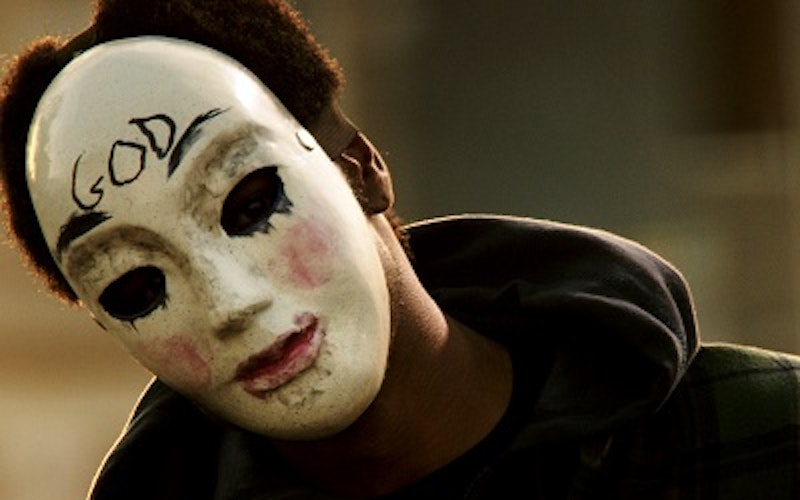
Movies
Time for Another Purge?
I’m not a fan of horror films. It is difficult for me to enter storylines that deny the sanctity of life and capitalize on the mass appeal of gratuitous violence. But I was sucked in by the provocative plot of The Purge. Though its ratings weren’t stellar, this low-budget, 2013 film grossed over $89 million and was successful enough to warrant a sequel, The Purge: Anarchy, which opened last Friday.
The premise of both films is simple. After crime and unemployment nearly brought the discontented nation to the brink of revolution, the United States has been reborn. To circumvent widespread upheaval, the “new founding fathers” went to the root. Rather than clamp down more tightly on violence, they created a socially sanctioned outlet for pent-up rage and population control.
Once a year, for 12 hours only, anyone may kill whomever they wish, except for high-ranking officials. The poor are especially vulnerable. The rich would rather rid the earth of them than subsidize social benefits. Citizens are encouraged to suppress whatever bitter feelings arise throughout the year and release them all on the appointed day.
What fascinates me about this film from a Christian standpoint is its overt acknowledgement that killing is sacrifice. The horror of the purge is not lost on the main characters, yet authorities have convinced the masses that the relative peace that prevails 364 days a year is worth the lives that are sacrificed on one day to secure it.
This notion has quasi-Biblical roots. Prior to the Flood, the Genesis author reports that the earth was filled with violence because every human thought was continuously evil. While the flood purged the land of nearly all humans and animals, it did not purge the human heart of wickedness. Though God knew humans would continue to kill, He vowed never to purge the earth again. This promise established a trajectory of salvation that would culminate in Christ.
To think Christianly about The Purge is to remember the abiding contribution of the book of Hebrews.
In the meantime, God sought to limit violence by decreeing that those who take human life must forfeit their own. The language of Genesis 9:6 is overtly sacrificial. In the same breath as supplying instructions for blood-letting in animal sacrifice, it decrees that the lives of killers be sacrificed to atone for the blood they shed. This cultic act restores the social and divine order - for only God has the right to give and take life.
It is difficult to know how much social commentary the producers intended with The Purge. There are striking connections between the honorific language of sacrifice they ascribe to casualties of the purge and the honor given soldiers who sacrifice their lives in war. Perhaps stronger is its connection to popular support for sacrificing capital offenders and bearing arms that are designed specifically to kill large numbers of people. It is telling that a young man exiting the theater after The Purge: Anarchy wore a t-shirt showcasing a gun on the back and a caption reading “the weapon of democracy.”
Whatever the producers’ intentions, to think Christianly about The Purge is to remember the abiding contribution of the book of Hebrews. Christ dies on one day - one time for all time - to atone for the violence of all humanity. Unlike this fictional purge, His sacrifice brings a decisive end to all sacrifice - whether cyclical (like the Old Testament sacrificial system) or occasional (like the woman caught in adultery). Humans need not die for their sins and animals need no longer be sacrificed. The legislation of Genesis 9, which began curtailing violence by limiting punishment to the slayer, found its fulfillment and termination in the Messiah who disarmed the would-be executioners of a capital offender and was, in turn, executed for a capital offense.
In doing so, Jesus began a purge of His own. James captures it particularly well. After instructing readers to be slow to anger - an anger that led some to the brink of murder - he implores them, “Rid yourselves of all sordidness and rank growth of wickedness, and welcome with meekness the implanted word that has the power to save your souls.” In light of the cross of Christ, we must not look to purge the world of the wicked among us, but to rid ourselves of the wickedness within us.
Topics: Movies